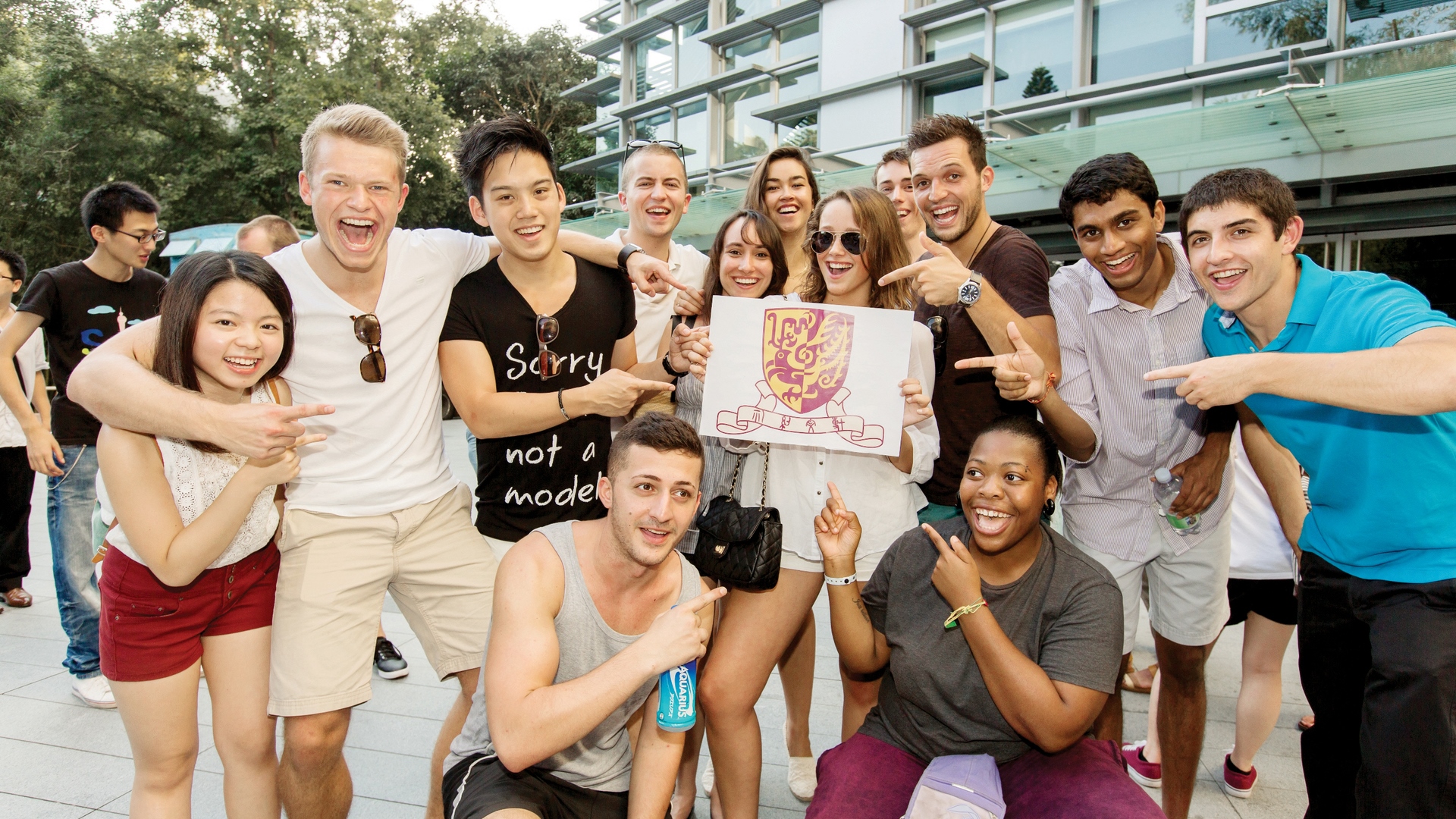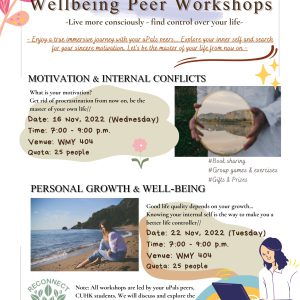Welcome to the Chinese University of Hong Kong. Studying here is an exciting adventure as well as a major life transition for all freshmen. For a foreign student, entering university and living in a different cultural environment also entails a process of dual adjustment. For many of you, this may be your first time away from home. While you may be looking forward to all the new experiences and opportunities that arise from living in a foreign place, you may also feel apprehensive about the many changes and uncertainties that you will encounter.
When you first arrive, people here will try their best to make you feel welcomed. They are usually warm, friendly and hospitable. You may be invited to many welcoming and orientation activities. Life can be busy but novel and interesting. However, as time goes on and everyone settles into one’s daily routine, the honeymoon will come to an end and you may begin to experience changes and cultural diversities that can be difficult to comprehend and deal with.

Changes and New Challenges
- When you were living at home, you may have wished to be more independent of your family. Now perhaps you find that you are left too much on your own.
- You may have felt your life to be too confined and restricted back home, but now you may be faced with too many choices, too much freedom and too little direction and guidance.
- You may worry about how to spend your free time especially during weekends and holidays.
- You may feel disoriented by the different sights, smells, sounds, tastes.
- You may miss your favourite food, comforts and pastime.
- You may experience culture shock and find the values, habits and customs of Hong Kong people to be confusing and incomprehensible.
- You may find your local roommate to be difficult to understand and get along with.
- You may wonder how you should interact with others and how to make new friends.
- You may find learning and communicating in a foreign language (English and Cantonese) to be difficult and inconvenient.
- You may worry about your academic performance or expect to do as well as local students.
- Your self-confidence may drop as you compare yourself unfavourably with your peers.
- You may feel homesick and start to worry about your parents, siblings and friends back home.
- You may be afraid that you will disappoint your family and friends if you do not do well here.

Adjusting and Fitting In
When living at home, you probably had many helpful strategies, support and resources to deal with stressful or problematic situations which may not be available to you now. As a result, you may feel that you are all alone with your problems and that there is no one to turn to. Some may even manifest symptoms of culture shock such as irritability, anxiety, depressive mood, insecurity, social withdrawal, disturbances in sleep and appetite, physical ailments, reduced efficiency in work and study, etc.
In such circumstances, it is important for you to understand that most of your reactions are normal and transient. The duration of such reactions will vary from person to person but generally will not extend beyond the second term. So be patient and give yourself time to get over the initial stress and confusion.

The following ways help to ease the stress and help you gradually adjust and integrate into your new community:
- Acknowledge the initial stress induced by changes and understand that your reactions are common but temporary.
- Establish a daily routine that can adequately attend to your physical and psychological needs (eat, work, rest, play, etc.). Taking proper care of yourself can make your life more manageable and comfortable.
- Actively explore and learn about the campus environment as well as the local culture and community; your sense of security and efficacy will increase as you become more familiar with your new surroundings, facilities and resources.
- Develop social networks and friendships with peers and students from your hometown; share and learn from their experiences and reactions. This can provide mutual support and security in adjusting to a foreign place.
- Interact with local students who can become your cultural informants; try to understand the local culture and resources through them.
- Avoid making judgments about aspects of the other cultures that may seem strange, or confusing; try to understand the underlying reasons and learn to understand, respect and embrace such diversities.
- Maintain a sense of humour even if you make mistakes; be patient in learning to overcome language and communication barriers.
- Develop stress-management strategies that are appropriate and effective for you, such as exercise, social gatherings, art, music, etc.
- Actively participate in student groups and community activities and become a true member of the community.
- Be informed of the support services available to you in the University as well as the local community and actively seek help when necessary.
It is hoped that apart from academic pursuits and cross-cultural learning, studying here will enable you to achieve self-understanding and self-enhancement, acquire new perspectives, define life goals, establish treasured relationships as well as enjoy one of the most memorable and rewarding periods in your lives.
If you need any assist, please do not hesitate to contact the Learning and Cultural Enhancement Section, Office of Student Affairs or community resources from the Support & Resource Hub.







